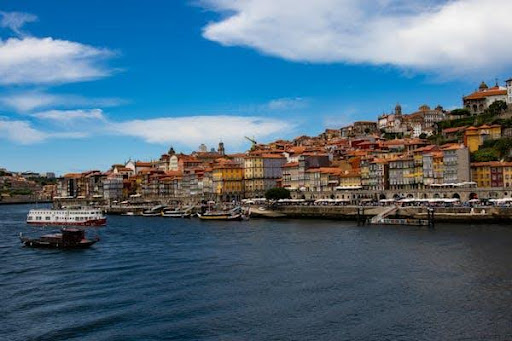Secret Of Portugal Citizenship With Tips!

Picturesque Portugal, with its scenic and cultural offerings, is a prevalent place to acquire citizenship. It ranks on par with Belgium and Switzerland as one of the most powerful passports. Why? Those with a Portuguese passport are privy to travel freely to various countries in the European Union.
With this in mind, Portugal’s citizenship scheme attracts many. One of the benefits of this dual citizenship is that it boasts few residency necessities and enables citizens to live anywhere without relinquishing their citizenship.
In addition, Portuguese citizenship allows for numerous country-based rights, including the right to vote.
Keen to obtain Portuguese citizenship? Read on to learn more about the ins and outs below.
How Can I Get Portuguese Citizenship?
There are several routes you can take to obtain Portuguese citizenship and join the Portugal passport rank. Some of which we have listed below:
1. The Portugal Golden Visa
Introduced in 2012, the Portugal Golden Visa is celebrated as one of the most sought-after across the globe. This visa came into play to heighten the Portuguese economy through foreign investment.
Various investment options are available; all will help you become eligible for a Portugal Golden Visa. These comprise an investment fund, real estate acquisition, a donation, job creation, or a capital transfer.
We look at these in further detail:
Investment Fund: You qualify for citizenship if you invest a minimum of €500,000 into an eligible Portuguese investment fund. These funds, which support the country’s businesses go by the name of Fundos de Capital de risco.
Real Estate Investment: You can purchase real estate in a high or low-density area. The latter option will require you to spend a minimum of €400,000 instead of €500,000. Another option? Purchasing property in an urban area that is over 30 years old is a requirement. You must spend €350,000 renovating this property. The areas not privy to this at present are Porto, Lisbon, and a handful of coastal towns. Properties in the low-density area, including Madeira and Azores, and several interior territories, are all on the list. These will help you to obtain the Portuguese Golden Visa.
Donation: There are currently two donation options available. These include a minimum investment of €250,000, which needs to go towards preserving national heritage, or a €500,000 donation towards a research and development initiative in Portugal.
Job Creation: You can choose to create ten new full-time jobs in a business in Portugal, which you must own. There is no fixed investment amount involved in this option. The second boasts two requirements. An investment minimum of €500,000 must be made in an existing Portuguese company. The second requirement? The company must create five new full-time jobs at a minimum. These must be put in place within three years of starting the company.
Capital Transfer: This is perhaps the most pricey option regarding ensuring your eligibility for a Golden Visa in Portugal. This route involves making a capital transfer of €1.5 million at a minimum to Portugal. To show your eligibility, you must provide evidence of all bank transfer deposits to the country. These must be deposited from an international account, which holds a total of €1.5 million at a minimum.
2. Citizenship via a D7 Visa
Often referred to as the Passive Income Visa or the Retirement Visa, this long-term residency visa, first initiated in 2007, differs from the Golden Visa in that it necessitates zero investment. As well as retirees, this visa is a popular option with digital nomads or remote workers.
This visa is only applicable to EEA, non-EU, and Swiss citizens who have a reasonable passive income and wish to relocate to Portugal on a full-time basis. This income may be a financial investment or from a retirement pension, a salary, or real estate.
To qualify for this visa, you must have a passive income of at least €8,460 per year. This applies to the main visa applicant only. The spouse must add a minimum of 50% to this income, which totals €4,230, and for a dependent child, 30% or €2,538. To put this into perspective, a couple wishing to move to Portugal with their child would necessitate a minimum sum of €15,300 per annum for the D7 Visa.
Other necessities? An untarnished criminal record and an address in Portugal. This can be a purchased property or a rental. In addition, you must reside in Portugal for 16 months during the first two years of your residence.
3. Citizenship through D2 Visa
The D2 Visa is suited to freelancers, entrepreneurs, and independent service providers wishing to live in Portugal. This visa can be applied for if you are a Swiss, non-EU, or EEA citizen. In addition, you must have the means to relocate an existing company to Portugal or start a new business. An alternative route? You can invest in a Portuguese company that is already up and running.
To prove your eligibility, you must show evidence of your business operating in Portuguese territory or proof of financial resources that showcase you have the means to set up a company in this country. This may be via a loan confirmation. Although there isn’t a minimum monetary requirement, €5,000 is the recommended sum.
The Bottom Line
A Portuguese passport is a sought-after citizenship option, especially for those looking to freely travel to countries within the European Union. With so many visa routes to opt for, there is bound to be one to suit your needs.
If you meet the necessary criteria, you can be on your way to gaining Portuguese citizenship and reaping all the benefits it brings.


